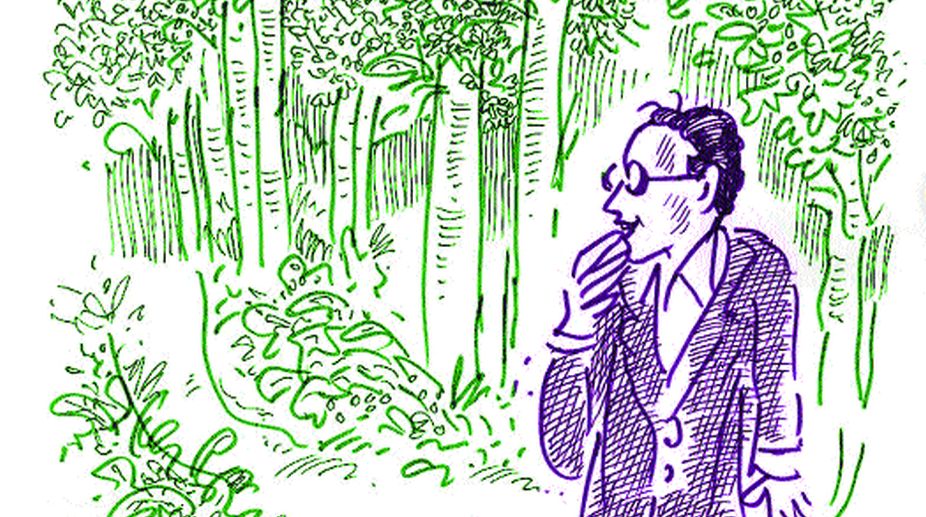Trump praises Modi for his leadership, global recognition
The American leader also praised the Indian PM's negotiation skills, calling him a tougher and better negotiator than he himself is.

(PHOTO: SNS)
I have always lived in large and noisy cities. When I moved to Washington, it was more of the same – much more. I loved it. The smell of the downtown thrilled me as much that of the Brooklyn sidewalk had pleased Woody Allen.
Then I took an interesting job in the exurbs and, in short order, bought a house in Reston to avoid the painful commute. The change was, literally, breathtaking. The first breath told me I was in a different place. There were trees and bushes all over; there was a lake next door with a spouting fountain; I could walk down a myriad trails without ever seeing a car. I did not know such a place existed except in some quaint European town.
Before I could settle down, however, I changed work and returned again to the big city orbit. Now in different countries. In Kathmandu I drove through cows and cattle to reach my office. In Abu Dhabi I drove through deserts to reach others’ offices. In Manila, I lived in a plush, gated community that fashionably called itself a ‘village’ but was located at the junction of two roaring highways. In Delhi, vendors hollered at passers-by to sell mangoes and curried peanuts. In Cairo, even the Coptic churches seemed all large, all noisy, and all seemed fun to me. Then again back to Reston, after fifteen years. In all these years, Reston had grown and changed. But it had somehow managed to retain its essential nature: an urban patch that tenaciously holds on to a pastoral charm, with swatches of green that surprise and please, a community of clusters that look after themselves and yet manage to have common interests and activities.
As important perhaps, the world had changed. The city meant a lot to me. Particularly what it offered. The theatre has been a major force in my life from my childhood. I understand much less of music, but the variety of music, from classical to pop and jazz, thrills me.
Libraries are an abiding source of joy; just to hold books, let alone browse or read them, gives me a delight I can’t explain. Above all, the clash of ideas excites me. I love to attend book launches where authors not only talk but also cross swords with bellicose listeners, think tank seminars where multiple speakers contradict one another or even simple lectures where speakers allow – or, thank Heavens, even encourage – contrary views in the garb of questions. I loved big cities for these.
But now you don’t need a city for these. Books, music, lectures, debates, all turn up in your study at the flick of a switch on a glowing screen. Books you download, music you can see and hear performed better than in an auditorium, and seminars and debates you can play and replay on your television. Yes, you miss the sense of immediacy, the excitement of being at arm’s length of a Nobel winning author, but in reality you see more, hear better and can retain what you like.
Something else I hadn’t noticed. I had changed. I had begun to notice that there are things beyond books and ideas. Quiet, that improbable thing, meant nothing to me earlier. I had lived happily in rowdy, raucous cities like Kolkata and Karachi. Now, suddenly, it seemed strangely refreshing to be in a silent space: to hear the rustle of leaves, a bird’s homing twitter, and late in the evening, absolutely nothing. Most absurdly, the two giant trees I see from my living room began to seem like old buddies, steady and majestic, with a message of perennial placidity. Now, in a mellow autumn, as the foliage around my deck changes to amber and gold, my heart turns unaccountably to a quiet tune I hadn’t known earlier.
Perhaps I am not a city man any longer.
(The writer is a Washington-based international development advisor and had worked with the World Bank. He can be reached at mnandy@gmail.com)
Advertisement
Advertisement
Advertisement